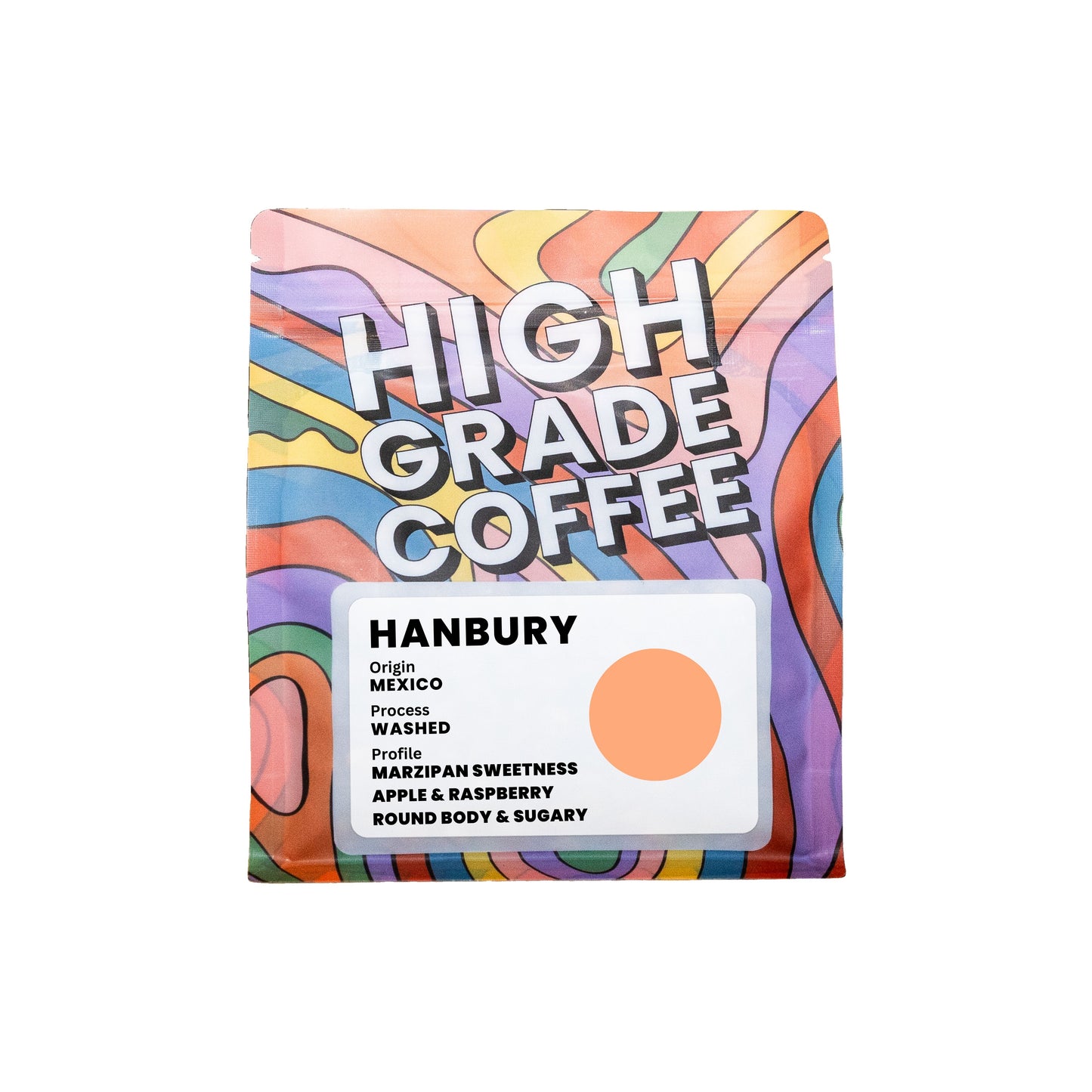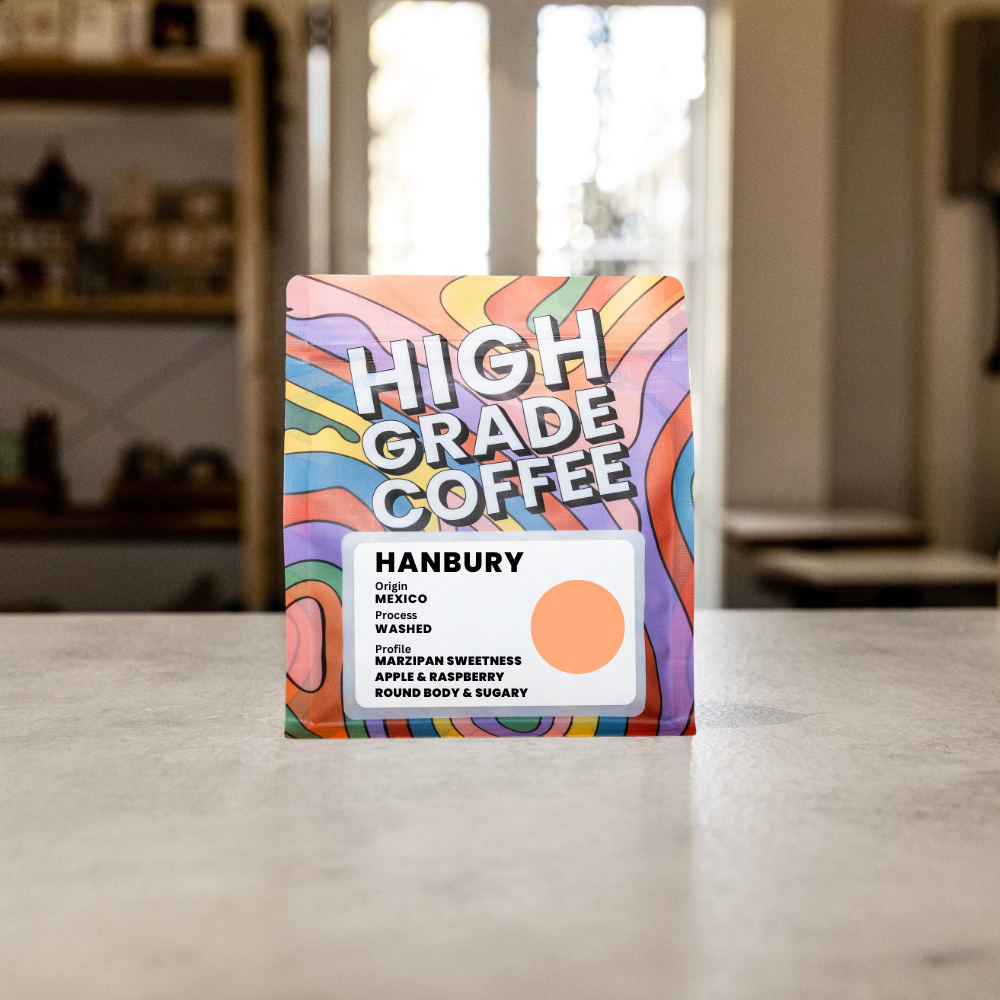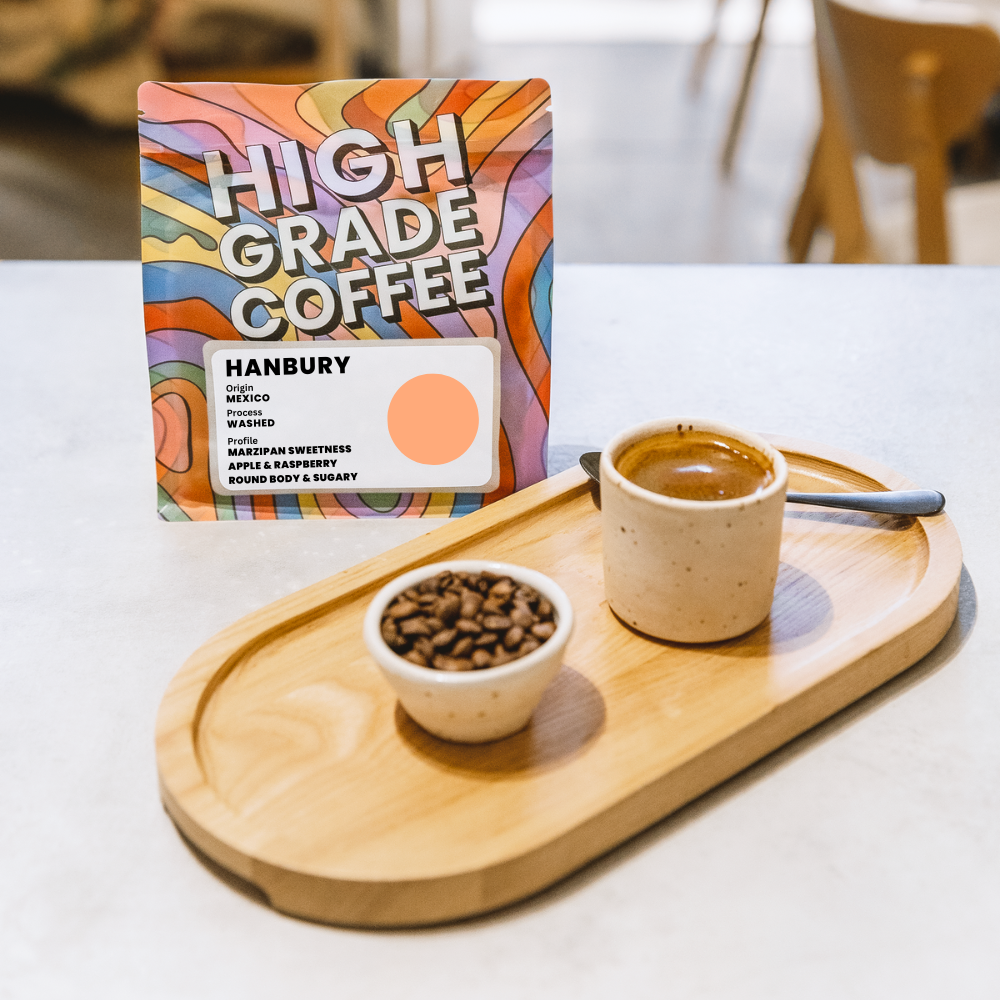HANBURY | Mexico | Washed
HANBURY | Mexico | Washed
Couldn't load pickup availability
Hanbury is our go-to espresso when we want something lively, sweet and easy to drink. This fits the same brief as our ‘Brick Lane’ coffee, but is a different origin and processing method. Seeking to be a solid alternative offering for espresso.
We pursue the notion that this coffee can achieve the ever-sought trifecta of big body, clean acidity and sweetness.
Micro batch roasted to order, on London’s Brick Lane, using the world’s lowest carbon emitting roaster.
ORIGIN: Mexico
REGION: San Cristobal, Chiapas
PRODUCER: Smallholder Farmer Cooperative
VARIETAL: Caturra, Costa Rica, Typica
PROCESS: Washed
ELEVATION: 1100-1350 masl
Share






a bit about the bean
Cooperative coffee
This regional selection is proudly sourced from the dedicated members of the Siembra Abundante Cooperative, located in the vibrant town of San Cristóbal de las Casas in Chiapas, southern Mexico.
This picturesque region, known for its rich cultural heritage and breathtaking landscapes, provides the ideal conditions for cultivating exceptional coffee.
The farmers in this cooperative typically manage small-scale farms ranging from 1 to 2 hectares in size, allowing for a hands-on, detail-oriented approach to cultivation. These farms are nestled at altitudes between 1,100 and 1,350 meters above sea level (masl), where the cooler temperatures and high elevation create a microclimate that promotes slow coffee cherry maturation. This extended ripening period contributes to the beans' unique flavor complexity and vibrant acidity.
The coffee varieties grown in San Cristóbal reflect a combination of tradition and innovation. Farmers cultivate well-known and respected varieties such as Marsellesa, Costa Rica, Typica, and Caturra. Each variety offers its own set of flavor characteristics, and together they create a diverse and balanced regional cup profile. The Marsellesa and Costa Rica varieties bring fruity notes, while Typica and Caturra, both heritage varieties, contribute sweetness, balanced acidity, and floral undertones.
The cooperative’s commitment to quality and sustainable practices ensures that every bean from this selection embodies the essence of the region’s rich agricultural and cultural heritage.

a bit about the region
Mexican Coffee
Mexico is one of the world’s most important coffee producing countries, known for its diverse regional profiles, high altitude farms, and sustainable practices. Mexican coffee regions are characterised by their unique microclimates, soil conditions, and cultural traditions, which result in distinct flavour profiles.
Coffee farming is deeply rooted in Mexican culture, especially among Indigenous communities, with a large amount of coffee farms being smallholder operations, with farmers relying on traditional methods passed down through generations. These practices, combined with Mexico’s diverse growing conditions, result in some of the most distinctive and flavourful coffees.

a bit about the process
Washed process
The washed processing method, also known as the wet method, is a common coffee processing technique that involves removing the pulp and mucilage from the coffee cherries before drying. This method generally produces a cleaner, more acidic flavour profile.
Harvest: Ripe coffee cherries are picked from the trees and immediately taken for processing.
Depulping: The cherries are passed through a pulping machine to remove the outer skin and pulp. This is typically done immediately after harvest to prevent fermentation from starting before the desired time.
Fermentation: The de-pulped beans, still covered in a layer of mucilage, are placed in fermentation tanks. This process breaks down the remaining mucilage, which can contribute to the flavor of the coffee. The length of fermentation can vary depending on factors like temperature, humidity, and desired flavor profile.
Washing: After fermentation, the beans are washed to remove any remaining mucilage. This step is crucial to ensure a clean cup of coffee without any off-flavors.
Drying: The washed beans are spread out on raised beds or drying machines to dry. Drying is a critical step to remove moisture from the beans and prevent spoilage. The drying time can vary depending on factors like weather conditions and desired moisture content.
Hulling: Once the beans are dry, they are hulled to remove the parchment layer. The parchment layer is a thin, papery skin that protects the bean.
Grading: The hulled beans are sorted based on size and quality. This step helps to ensure that the coffee is consistent in terms of flavour and appearance. During specialty processing, more time is taken or indeed repeated to ensure a more refined product.





